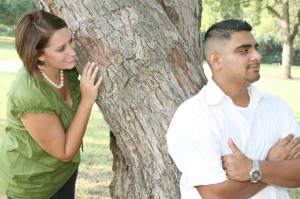“Do We Need Couples Counseling?”
 Some couples engage in couples counseling “proactively”– not because they feel they have problems, but because they see counseling as an investment in their relationship and a process to develop good skills, especially communication.
Some couples engage in couples counseling “proactively”– not because they feel they have problems, but because they see counseling as an investment in their relationship and a process to develop good skills, especially communication.
More often though, couples consider counseling when they have concerns about their relationship, or are experiencing conflict. At some point or another many couples often wonder, “do we really need counseling?”
In his bestselling book, “Why Marriages Succeed or Fail”, relationship expert John Gottman identified four key factors that predict problems in relationships– in some cases, even divorce. Gottman referred to these factors as the “four horsemen” of what might be important warning signs or even the harbingers of “relationship apocalypse”:
- Criticism involves attacking another person’s personality or character. Criticism is different than complaining (sometimes called “constructive criticism”) which involves expressing dissatisfaction with a specific behavior. An example of criticism versus the expression of a healthy complaint might be: I’m frustrated when you don’t help me with household responsibilities versus “You’re the laziest person I know!”
- Contempt means intentional insult or psychological abuse to partner. In other words, showing contempt basically means saying things to intentionally hurt your partner. Contemptuous body language shows up a lot in couples therapy, mirroring what likely occurs at home. Some examples of contemptuous body language might be: heavy sighs, rolling eyes, sneering, laughing maliciously. Contempt damages relationships because it begins to negate positive feelings partner’s have for each other.
- Defensiveness is a natural response to criticism and contempt. Leads to thinking of oneself as right and partner as wrong. Excuses, justification, and return accusations.
- Stonewalling is another common reaction to criticism and contempt. Over time, we may develop the tendency or even habit of being “checked out” or “tuning out” during conflict or emotional conversations.
Effective counseling can help couples identify and address these dynamics, as well as common issues such as intimacy, trust and financial conflict.
Outside of counseling, there are some simple things you can do to prevent or reverse some of these dynamics in your relationship:
- When expressing frustration or even anger with your partner, focus on behavior, not character.
- I often encourage my clients to leave the ideas of “right or wrong” to the courts, and outside your relationship. Try eliminating words like right, wrong, should and shouldn’t from your vocabulary when communicating about your relationship. Focus on what you like and prefer, or don’t like— again in terms of behavior, not character.
- Guard against contempt, in both your verbal and non-verbal language. Learn to monitor your feelings and take a break if your feelings overwhelm your good judgment in what you say and perhaps more importantly, how you say it.
- Develop self-awareness (mindfulness) of your own tendency to “tune out”– especially in emotionally-charged conversations or conflict. If you notice your attention drifting or shifting away from your partner when they are talking, try gently returning your full attention to your loved one. If you find that you’re just not able to be fully present, then sometimes it’s best to respectfully explain that you’re just not able to talk about the situation “right now” and take a break.
- Be careful not to use this strategy to avoid sensitive topics altogether. If you do need to defer a conversation, be committed to re-engaging at a later time– you may want to even set a specific time to try again.
An important note: simple doesn’t mean easy. Sometimes a new behavior can seem simple or even commonsense, but putting these ideas into practice can prove challenging. Like any new habit, practice and repetition are key to replacing old behaviors with new.
The guidance of a skilled couples counselor can help create a safe environment for partners to explore and practice new ways of relating to each other. Of all psychotherapists, Marriage & Family therapists (MFTs) receive the most extensive training in the specialty of working with couples.
Like with all therapies, the choice about whether to engage in couples counseling is a very personal and individual decision, and the selection of a therapist who you feel can best work with your specific needs is essential.
Feel free to contact me to discuss your questions and possible goals for couples counseling and how I may be able to help.
– Timothy Ford, MA, MFT
 TIMOTHY FORD, M.A., M.F.T.
TIMOTHY FORD, M.A., M.F.T.